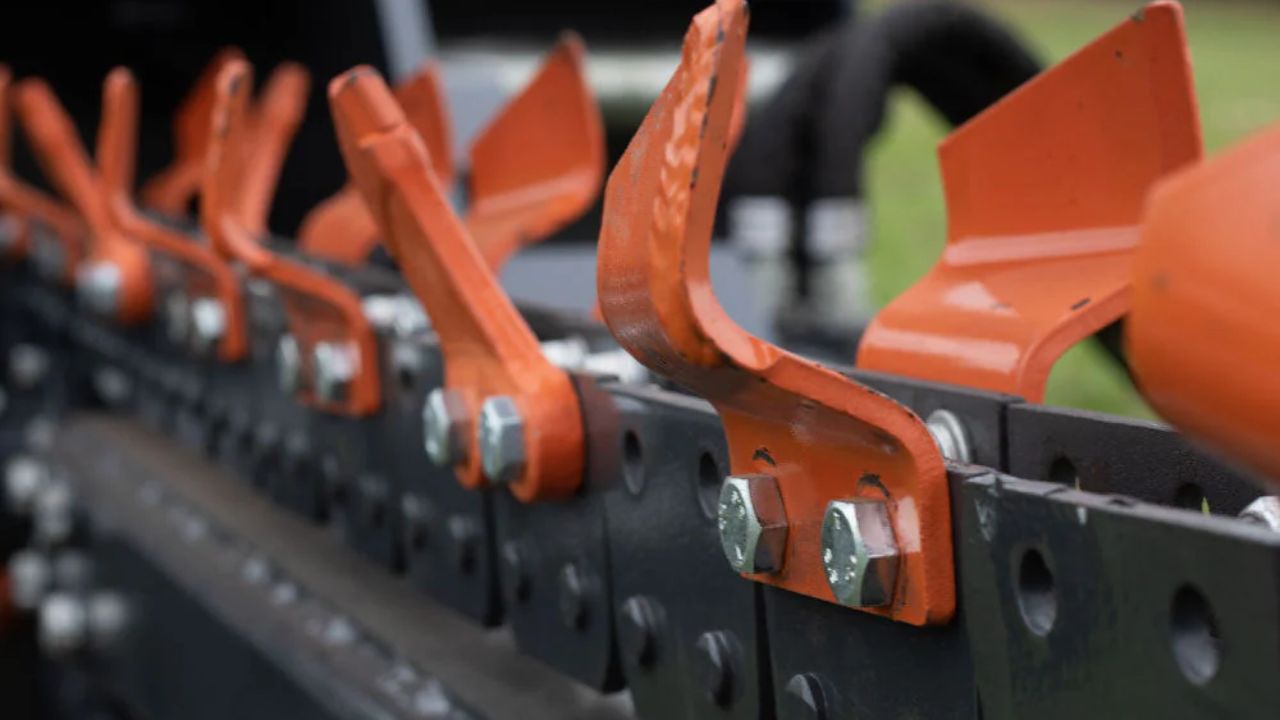During excavation and trenching operations, trencher's teeth function as vital elements because they allow the soil to be cut through diverse types of earth. The teeth endure natural wear throughout their lifetime until their operational efficiency decreases. The decision for trencher teeth replacement requires immediate attention since it determines operational efficiency, equipment longevity, and operational expenses.
Decreased Cutting Efficiency
A trencher tooth replacement becomes necessary when cutting efficiency starts to decrease noticeably. Trencher's teeth maintain their ability to easily cut through the soil when they are in their optimal state to produce clean and precise trenches. The teeth' declining condition makes cutting through the ground harder, increasing machine power requirements. The machine moves slower while the soil no longer receives clean cuts during operation. The suboptimal cutting performance leads to elevated fuel usage and extended project durations.
Excessive Vibration and Machine Strain
The wear of the trencher's teeth leads to uncontrolled machine vibrations during equipment operation. After sharpness loss, the machine needs more power to break through the soil, which creates excessive stress on motor and hydraulic components. The operator experiences increased resistance and abnormal machine shaking, indicating that the trencher's teeth have reached maximum operational effectiveness. Operating with worn teeth in this state will cause excessive wear on other machine components, thus increasing maintenance expenses.
Uneven or Inconsistent Trenching
A deterioration of the trencher's teeth manifests through irregularities in the trenching results. When teeth are both pointed and in good condition, they make trenches that maintain uniform dimensions across their entire length. A damaged trencher produces irregular cuts when its teeth become dull or damaged, which requires additional work to repair the trench shape. When teeth deterioration occurs, the need for accurate pipeline and cable and drainage system installation trenching becomes severely compromised.
Visible Wear and Damage
Scheduled inspections for replacement purposes allow physical wear and damage to be identified on the trencher's teeth. A trencher loses its efficient performance when its teeth exhibit cracks, show missing carbide tips, or develop rounded edges. High-impact conditions and abrasive soils gradually wear down trencher teeth, decreasing cutting performance. The trencher will sustain additional damage from broken or severely worn teeth, but replacement at this time will protect the machine from further damage while ensuring peak operational efficiency.
Preventing Costly Repairs
Operation efficiency suffers when the trencher's teeth remain unreplaced, which causes maintenance expenses to rise. The teeth deterioration of trenchers causes excessive power draw for digging soil, creating extreme stress on the engine and hydraulic system. The excessive wear of trencher's teeth generates additional stress that causes overheating, which reduces the operational time of other components and forces expensive maintenance work and equipment shutdowns. The efficiency of trenching equipment improves through regular inspection of the trencher's teeth for replacement. It results in reduced fuel consumption and extended equipment lifetime.
Increased Fuel and Maintenance Costs
When the trencher's teeth are dull, the machine needs to use additional power. Regular maintenance stops and operator adjustments decrease the machine's productivity rates. Neglecting to replace the trencher's teeth will result in equipment breakdowns that require expensive maintenance. Proper timing of new teeth purchases reduces fuel expenses and minimal downtime while maintaining trencher operational efficiency.
Conclusion
Identifying the trencher's teeth wear signals the need to protect machine efficiency while minimizing operational expenses and machine wear. The need for new trencher teeth arises when cutting performance declines, equipment vibrates excessively, trenches irregularly, and shows visible damage while fuel expenses increase. The performance quality of trenching equipment remains optimal through regular inspections and prompt replacement procedures, which enables operators to finish their work efficiently and accurately.


